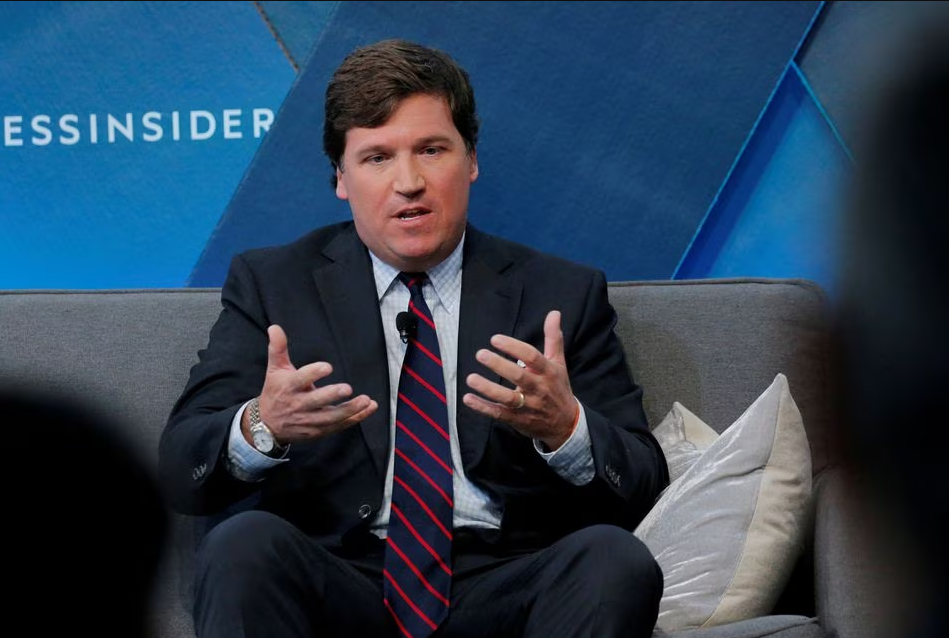David Malpass, President of the World Bank, stated that ‘the human consequence of these overlapping crises are catastrophic.
Photo: Lev Radin/Zuma Press
WASHINGTON – The head of the World Bank warned that the near-term outlook for developing countries is very challenging due to the sharp slowdown of global growth. This raises the risk of a prolonged recession.
Speaking Wednesday at Stanford University
David Malpass
The war in Ukraine has caused higher food, fertilizer, and energy prices, as well rising interest rates, currency appreciation, and capital outflows. This could lead to a shortage in funds that can be used to support people’s economic activities and lives.
He said, “The human consequences of these overlapping crises are catastrophic.”
The International Monetary Fund and the World Bank will host meetings in Washington next month to discuss the global economic slowdown. In the midst of high inflation, rising interest rate, market turmoil, and the effects of Russia’s invasion of Ukraine, central bankers and finance officials from all over the globe are planning to meet.
While growth prospects for wealthy economies like China and the European Union are declining, Malpass stated that developing countries face additional risks. He said that policies adopted by advanced economies to combat inflation and slowdown could leave behind insufficient capital for less-developed nations.
He said that if current fiscal and monetary policies are the new norm, it would mean heavy absorption of capital by advanced countries, prolonging the underinvestment in developing countries, and hindering future growth.
Mr. Malpass stated that underinvestment in developing countries began after 2008’s global financial crisis. This was due to a shift in monetary policy of advanced economies towards zero interest rates and massive bond buying. He said that the easy-money policies in America, Europe, and Japan have fueled asset prices in advanced economies while limiting investment in developing countries.
He stated that “a pressing danger for the developing countries is that the sharp slowdown of global growth deepens into world recession.”
The risks of a recession are increasing.
In September, Europe’s economic activity dropped sharply. To stabilize the UK’s debt market and prevent a crisis in its pension system, the central bank of the U.K. began emergency purchases of government bonds Wednesday.
Monday’s cut by the World Bank in China was a result of a real-estate crunch, and the government’s zero tolerance approach to Covid-19.
According to the Organization for Economic Cooperation and Development, the war in Ukraine will result in $2.8 trillion in lost production by the end next year.
In a September 15 report, World Bank economists stated that the global economy would likely grow by 2.9% this year. This is down from 5.7% last. They expect growth to slow further to 2.4% next, before recovering to 3.3% in 2024.
Emerging-market and developing economies are among the worst-hit countries. They rely on more expensive imported fuel and commodities. Many were already in deep debt after the economic slumps that were linked to the pandemic and a period of low interest rates.
Slowing growth, rising U.S. rates of interest and a strengthening dollar are further pinching these countries, increasing concerns about a possible debt crisis in low and middle-income countries.
In recent months, yields on emerging market debt have skyrocketed as investors abandon them in favor of safer assets. Numerous countries, including Argentina, Pakistan, Egypt, Sri Lanka, and Pakistan, have turned to IMF for assistance, pushing the outstanding loan amount of the international financial institution to record levels.
As the IMF & the World Bank attempt to address global economic problems, Mr. Malpass is facing a problem of his very own. He has been criticized for his comments about climate change.
Climate activists have asked Mr. Malpass for his resignation following last week’s response to questions about whether burning fossil fuels caused global warming. A public discussion on climate issues hosted at the
New York Times
He declined to answer directly, saying that he was not a scientist.
Since then, he has sought to clarify his position by stating that climate change is caused by greenhouse-gas emissions. Former President Donald Trump’s nominee, Mr. Malpass, stated that he isn’t resigning.
According to a source familiar with the situation, Mr. Malpass apologised for his “poor performance” at the climate discussion at an all-hands bank staff meeting on Tuesday. This person claims that he made similar remarks Monday at his meeting to the World Bank Board.
Wednesday’s speech by Mr. Malpass highlighted the active role of the World Bank in addressing climate crisis. He noted that the Bank is the largest single financier of climate-related finance in developing countries and a leader on areas such as climate diagnostics, methane emission reduction, and innovative climate financing.
Write to Yuka Hayashi at [email protected]


 World News2 years ago
World News2 years ago
 World News2 years ago
World News2 years ago
 World News2 years ago
World News2 years ago
 World News2 years ago
World News2 years ago
 World News2 years ago
World News2 years ago













